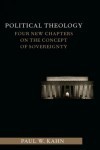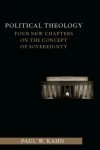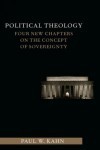During the past two decades, political liberalism has been put on trial. Political theorists indebted to Sheldon Wolin (William Connolly, Romand Coles, Bonnie Honig) have, in various ways, exposed liberalism’s tendency to conceal or downplay significant dimensions of political struggle. These authors indict liberalism for its narrow understanding of public reason, an understanding that underestimates qualities, practices and interactions within our lifeworlds that tend to thwart liberalism’s drive toward consensus and agreement (here I am thinking of clashing visions of the good life, memory of injustice, or the emergence of new movements that challenge our very notion of publicity and reason). This trend within political theory resembles developments in religious studies and theology. Recent discussions between Stanley Hauerwas, Jeff Stout, and Cornel West revolve around liberalism’s tendency to depoliticize religious commitments by relegating them to the private sphere. For these authors, this inclination overlooks the deep connections between democratic struggle and religious practice within American history. These authors remind us that democracy and faith are bedfellows (and not necessarily strange ones).
Jonathan Kahn and Vincent Lloyd, in recent blog posts here, attempt to move these discussions further and potentially in new directions…
By Jonathon Kahn, Vassar College
Who are the fools among us who continue to have faith in democracy and in American democracy in particular? After a desultory three-year period of community organizing in the corner of Harlem that I call home, I find myself preoccupied with this question. My community was unable to bridge the gap between what came to be called the “old” and “new” Harlem. To be sure, there were moments that Bonnie Honig might call “democratic ruptures,” when my community tried to rework its own sense of “we-ness.” But these moments were fleeting. “Ordinary life,” as Honig says, “reasserts itself, with a bit of a vengeance.”[i] Democratic energies dissipate. Democratic energies fail.
And yet I find myself wanting to argue that democratic faith is possible and needed. Though I have no theistic beliefs of my own, I can find no way to move forward with democratic life except as a person of faith. What, then, do I mean by faith and why does democracy need it?
This kid is a nobody from nowhere. Yet it will be this forgettable, easily dismissed kid whom God will raise up to be the King of Kings and Lord of Lords, the greatest of all who ever lived and ruled, but nothing like any who have gone before him in those roles.
The editors of Political Theology are pleased to announce that the latest issue is now available on the web. Issue 12.6 (December 2011) carries a special section devoted to issues of migration and asylum, and features a guest editorial on ‘Migration as a Challenge for Theological Ethics’ by David Hollenbach, SJ, who holds the University Chair in Human Rights and International Justice at Boston College. This is followed by three related articles by Elena Namli, from Uppsala University, Sweden; Mark W. Potter, who is the Provincial Assistant for Social Ministries of the California Province of the Society of Jesus; and Anna F. Rowlands from the Margaret Beaufort Institute, University of Cambridge. The editorial and review open access. The full table of contents appears below:
Here we have one of the classic Advent themes associated with our preparations for the birth of Christ, but actually referring to John the Baptist as the forerunner of Jesus’ ministry 30 years later. I want to suggest an unorthodox and creative way of interpreting this text, one perhaps more in-keeping with the current context. We are inclined to ask ourselves “whose are the voices?” and “where is the wilderness?” I will reverse these questions in order to throw some light upon the nature of vocation and the reasons for the apparent frustrations of it.

In my prior posting, I was concerned with elaborating the disciplinary position from which I take up the project of political theology. It is a part of the secular study of our political practices and beliefs. Accepting these limits, I placed myself within the same modernist tradition as liberal political theory.
There is a deeper point to be made about the symmetry between theory and practice in the modern age. Liberal political theory is committed to the idea that an adequate account must be one that is fully transparent to reason. Theory is to be built through discrete, rational steps from common premises that purport to be universal. Accordingly, it is hostile to any privileged claims made on the basis of a particular faith, including claims for the existence of God or a natural order. In a parallel fashion, the modern, political order is to be autochthonous. It is to rest on nothing outside of itself. This is not a claim about history, which knows no beginnings; rather, it describes a secular understanding of the origin and ground of the state. This is an important idea, for example, in the decolonization movement: a post-colonial state can create itself through an original founding act. It need not express a pre-existing national or ethnic identity.
It’s easy to read this week’s gospel as a warning of doom and gloom. It begins, after all, with this strict admonition, “Be Alert!” (v 23), and ends with the equally forceful command, “Keep awake!” (v 37). It’s as though Jesus has just shouted, “Watch out!” and thrown a ball of flaming fire into the crowd. But, of course, there is no fiery ball and so the question naturally is, “Watch out for what?” Within the pericope itself, the obvious answer becomes the awesome image that Jesus paints in verse 26: “The Son of Man coming in clouds with great power and glory.” And why should we be concerned? (Apart, of course, from the darkened moon and falling stars…) Because Jesus says the Son of Man is like a master returning and from there we write our own scripts of what wrath this master might bring. “Keep awake!” the Bible tells us, and we add, “Because if we sleep, we might be hit by that fiery ball!” And, indeed, for Matthew and Luke, who record this prediction as “a thief coming in the middle of the night,” rather than a master returning to his home, such fears may be warranted. But, for Mark, different dynamics are at play…

This book is a timely intervention within current debates about the role of religion, politics, philosophy and the public square. I was reading it as the Western World was once again reflecting (and in a not very coherent or analytical way) on the tenth anniversary of 9/11. As Kahn persuasively reminds us, international terrorism inextricably linked to religious imaginaries has forced liberal democracies and liberal intellectual disciplines to wake up to the real nature of politics: the themes of sovereign decision; the power of the exception rather than the bureaucratic norm; the lure of sacrifice and martyrdom; the will to act and choose authenticity rather than the use of reason or appeal to the norm. These are the seductive and destructive options that the international and religiously inspired terrorist offers us.
This was the defense of a banker – as seen in a BBC interview Monday 7th November. Later that day, the long-awaited St Paul’s Institute report on its survey of London-based bankers was published. In advance of this a decision was made to interview a young woman from within the profession to get her response to the suggestion that there was a lack of morality in the City of London. I was so staggered by some of her responses to this challenge that I felt bound to try to draw out the logical consequences of what she had said. What follows is exactly that.
Political Theology and the lectionary for Sunday, November 20, 2011.
To be sure, some smart evangelicals like Chuck Colson have abjured Rand in toto for her atheism, but her basic premise that government is the root of all evil and that unfettered capitalism is the answer for everything is as true as Trinitarianism in most evangelical’s minds and hearts, a position all but unheard of in Christianity prior to the 20th century.
To think this way as a Christian, one has to do strange things with the Scripture, such as with this week’s lectionary gospel passage for Christ the King from Matthew 25:31-46. The obfuscation of what’s going on in the text is accomplished by diminishing one aspect of the text, while overemphasizing another.

A sensible theologian gets used to the marginalization of theology in the mainstream academy. To find a book about the importance of political theology by a legal scholar at Yale is, however, cause for excitement. Paul Kahn’s exploration of, and extrapolation from, key themes in Carl Schmitt’s classic work goes beyond the usual association of political theology with fundamentalism and shows how even a liberal political order has a theology of its own. There has been no “resurgence” of religion; Kahn sees rightly that Mark Lilla’s “Great Separation” never happened, and that even liberal nation-states like the U.S. have taken on the aura of the sacred. Kahn’s insightful comments about nuclear warfare make this point acutely: “How is it that a political order that understands itself as characterized by the rule of law can hold forth the possibility of such destruction?” (11-12). It can only be because the nation has taken on an infinite value, and the popular sovereign, or nation as god, must retain its exceptional powers to act. In times of war, the President embodies the people like Christ embodies the whole (86). Liberal theories like that of Rawls have never properly come to grips with the violence of the nation-state and the persistence of sacrifice in modern politics.
All of this and more is expanded upon in quite brilliant fashion, and I remain grateful to Kahn for opening up new lines of inquiry that may have been heretofore closed to legal and political theorists. In the end, however, there is less convergence than first appears between political theology as Kahn understands it and what goes under the same name in the present journal.